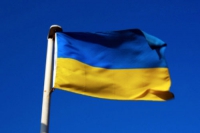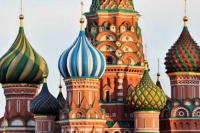
The history of the Ukrainian language development
It cannot be denied that language is a peculiar genetic code of the nation, a constituent part of its national culture. The world science provides unchallengeable facts proving that the Ukrainian language is one of the oldest and most splendid languages due to its melody and vividness.
We can speak about the language of Ukrainian proto tribes only hypothetically as there are not enough surviving written documents enabling a full study of the language. Thus it is difficult to establish certain chronological milestones in the development of the language. Meanwhile, there is not doubt that Ukrainian is one of the most ancient Indo-European languages. This is evidenced both by the presence of archaic vocabulary and certain phonetic and morphological features preserved in the language. The antiquity of the Ukrainian language was proved by native and foreign scientists such as Pavel Shafarik, Mikhail Krasusky, Alexey Shakhmatov, Agatangel Krimsky and others. In 1879 the Polish linguist Mikhail Krasusky stated in his book “Ukrainian Language Antiquity” that Ukrainian is the oldest among all Slavic languages and one of the oldest among such languages as Sanskrit, Greek, Latin and others.
A lot of scientific debate is also caused by the question of the written language existence in the Ukrainian lands. Archeological findings testify to the existence of written symbols on pottery, spindle whorls, weapons, etc even before the period of Tripoli, though nobody knows for sure if it was phonetic or hieroglyphic writing. The tribes of Tripoli, Catacomb culture of the Bronze Age, Zarubenets and Chernyakhov cultures had their own written language. It is said to be the Greek or the Russian written language. Thus, for example, an Iranian writer Marvarudi states that “Khazars have a written language which comes of Russian” and is similar to Greek. The written language in the Ukrainian territory is supposed to have several versions. For example, Northern Black Sea regions used the alphabet similar to the Greek or Latin ones, while the eastern regions had their own original letters known as Sarmatian signs looking like Georgian or Armenian letters.
The present-day Ukrainian alphabet letters look mostly like the Greek
ones though there are some purely Slavic letters. These letters may be
added to the alphabet by Cyril. But he is known to have created a
completely new alphabet. It should be noted that alongside with
Cyrillic alphabet there was another alphabet known as Glagolitic which
was characterized by distinctive flourishes. Scientists cannot find
its analogs. This gives grounds for asserting that Glagolitic alphabet
is the creation of one man, in contrast to the Cyrillic alphabet which
is of natural origin and has long-standing prototypes.
For a long time there lasted a heated debate among linguists
regarding the periodization of the Ukrainian language. Many of the
proposed periodization schemes proved controversial, because they
relied on the principle of changing social formations: the feudal
language, the language of capitalism, the language of socialism.
Naturally this scheme could not show all the stages of the literary
Ukrainian language development because changing formations could not
affect the language sound system or its grammatical structure. The
literary Ukrainian language is enriched mainly by adopting new words,
by improving spelling and grammatical rules, by developing literary
styles and ways of expression. Many modern Ukrainian linguists insist
on the revision of the theory concerning the unity of the three
fraternal languages. They believe it to be an ideological dogma which
was imposed on all scientific institutions in the Soviet era and
served “the imperial interests of the USSR”. In their opinion, the
scientific evidence examined by unaffiliated linguists at the
beginning of the Soviet period was ignored and proclaimed harmful.
Thus, academicians Alexey Shakhmatov and Agatangel Krimsky wrote:
“Common Russian ancient language split into separate dialects in
prehistoric times, at the end of VIII or in the beginning of the IX
century."
Ukrainian language features are clearly visible in the ancient monuments. Abundant material for researchers is provided by such grammatical category as a gerund, it reveals so many Ukrainian forms, the very listing of them clearly shows that the southern Russian literary monuments were written by chroniclers of Ukrainian origin. Agatangel Krimsky wrote in his book entitled “Ukrainian Language. Its Development and Origin”: “The language of Trans-Dnieper river region and Red Russia during Saint Vladimir and Yaroslav the Wise period has for the most part all modern Ukrainian features”. The issues of comparative lexicography of the Ukrainian and Russian languages have been studied both by Russian and foreign scientists. For example, a professor at Oxford University Karl Abel singles out the two branches of the Russian nation: Slavic-Russian (Ukrainians) and Finnish- Russian (Muscovites). He writes that in the late XIX century only in the European part of Russia there lived 40 million of Finnish-Tatar people and only 15 million Slavs. That is why the process of Muscovy becoming Slavic lasted more than 500 years. Under Peter the Great it was forbidden to say that not the pure Russians but the Finnish-Ugric, Tatar and other people inhabit Siberia and Asian lands.
Ukrainian language is the national acquisition of the Ukrainian
society but at the same time it is a related language to Russians and
Byelorussians as well as to many Slavic languages. Besides, it
performs the function of integrating people strengthening statehood,
ensuring cultural and economic development.
Taras Shevchenko stated that as long as the language is alive, its
people are alive too and the most intolerable violence is that which
seeks to deprive the people of memory and heritage created by
generations of their ancestors. These poet’s thoughts echo those of
K. Ushinsky, an outstanding teacher: “You can deprive people of
everything but they can get it back in the long run, but if you
deprive people of their language, they will not recreate it. Once the
language is dead, the nation is dead as well”.




